Julian Eaves reviews Aspects Of Love by Andrew Lloyd, Charles Hart and Don Black which has transferred to the Southwark Playhouse London from the Hope Mill Theatre in Manchester.
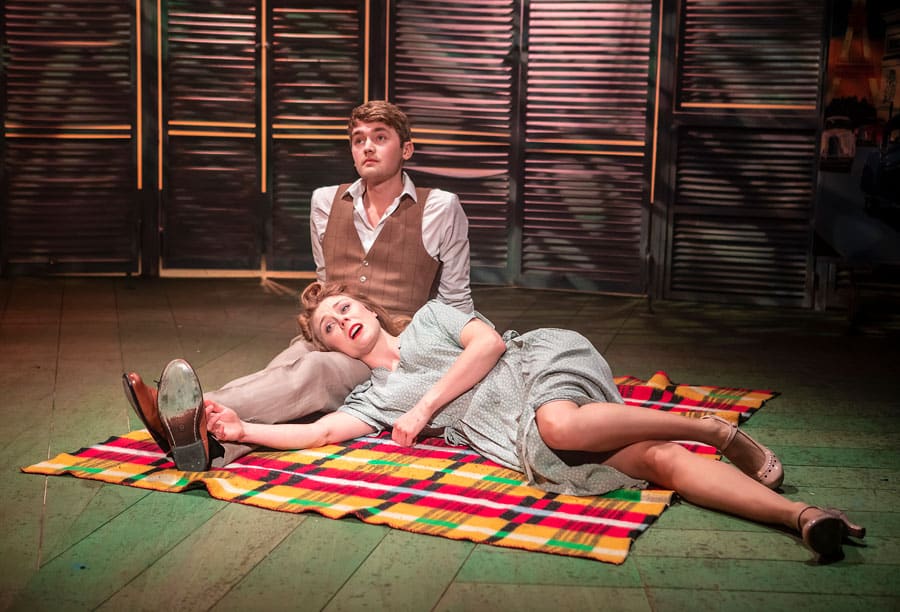
Aspects of Love
Southwark Playhouse
10th January 2019
4 Stars
Book Tickets
We are seeing quite a rediscovery of Andrew Lloyd Webber’s musicals at the moment, and here is another one brought wonderfully back to life by producers Jim Kierstead and Katy Lipson working in conjunction with the originating house, the Hope Mill Theatre in Manchester, now making its glorious way into the Southwark Playhouse in south London. At the press night on Thursday, joint lyricists Don Black and Charles Hart were on hand to witness its splendid re-incarnation as a chamber musical of the very finest kind, and to see and hear just how effectively it plays with a cast of 10 accompanied by two pianos and percussion. The cast felt the same effect, and everyone seemed to agree that this is not so much a musical as a play in which everyone sings and – occasionally, to stunning effect – dances.
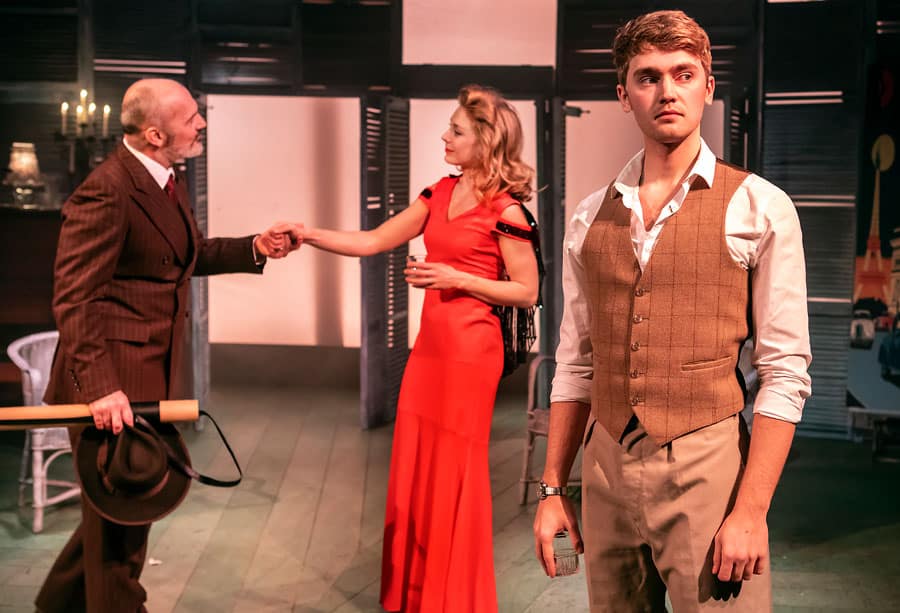
The first thing that grips you about this presentation is Jason Denvir’s beautiful design: we enter immediately into not so much a set as an environment, with a ceiling hung with nightclub lights and a back wall of white louvred doors, and the famous square-shaped thrust stage of the theatre lined with cabaret tables and chairs. A couple of large advertisement hoardings signal the (many) changes of location, and Aaron J Dootson’s lighting strategy is alive to every subtle change of focus and mood as we move backwards and forwards between town and country, theatre and home, a railway carriage or a military encampment overseas, and everywhere else that this restless, epic tale of love and loss across 17 years manages to encompass. Based upon David Garnett’s 1955 novel of the same name, fascinatingly – and how characteristic of an artist who always seeks to explore new expressive highways – Lloyd Webber himself created the adaptation of the book. The writing of the lyrics – and what fine and clear and beautiful words they are – was then entrusted to the combined team of two of his established collaborators: Don Black, bringing the intimacy of ‘Tell Me On A Sunday’, and Charles Hart, bringing the operatic sweep of ‘Phantom of the Opera’. ‘Aspects’, therefore, fuses the intimate, up-close feel of the one with the romantic drama of the other, and to superb effect.
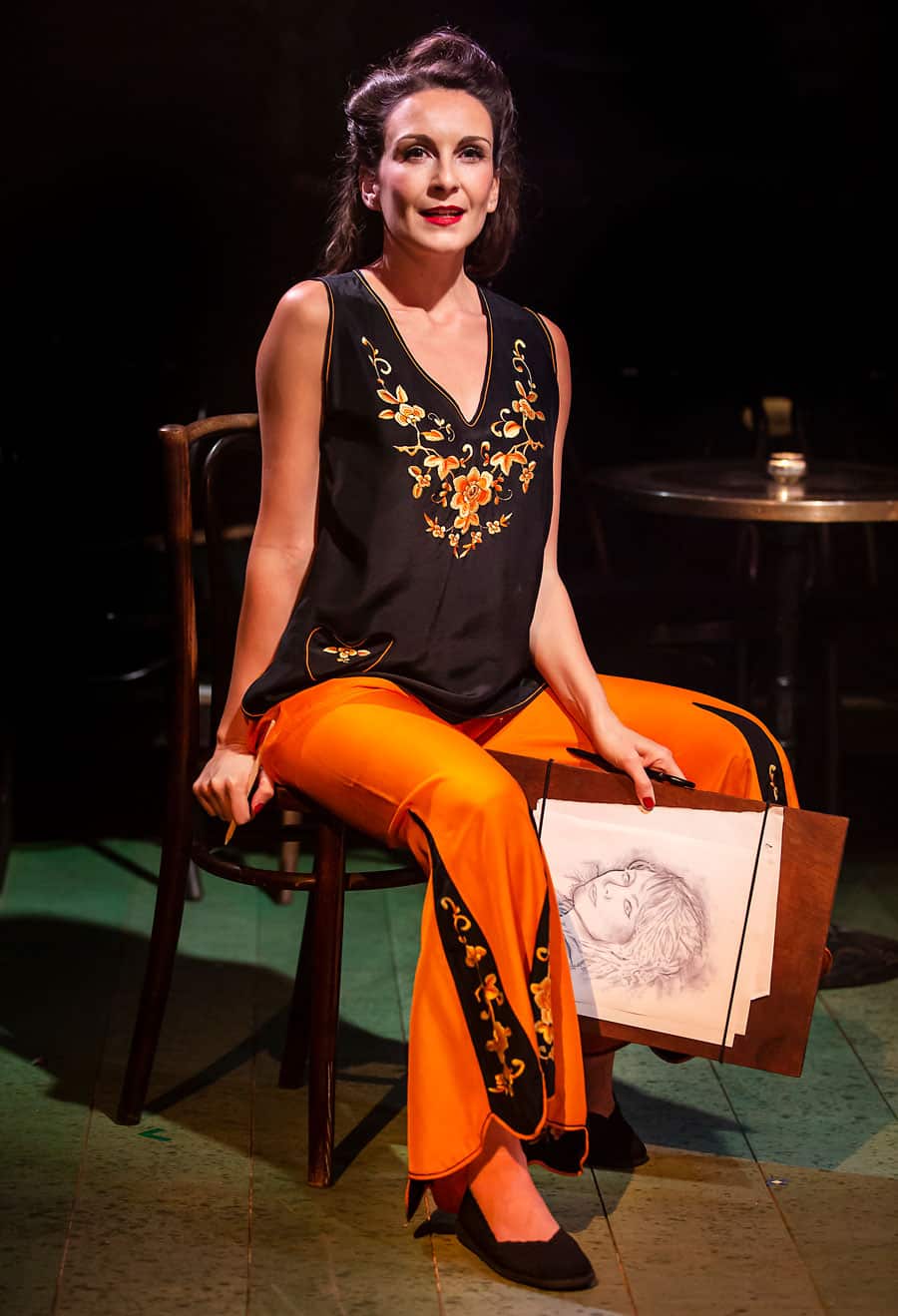
The show ran three substantial years when first launched at the Prince of Wales theatre in 1989, making a star out of Michael Ball in the process and catapulting a raft of terrific new songs into the popular music repertoire. The work has travelled the world since, playing Broadway, South Africa, and Holland, as well as enjoying a number of revivals in the UK, with some very stellar casts indeed. Somewhere inside, however, it was felt that there was a more personal story waiting to get out, and Trevor Nunn’s version at the Menier Chocolate Factory in 2010 showed us a first look at that. Five years later, Lloyd Webber produced his own performing version of the small-scale show and now, through director Jonathan Boyle’s good offices as director of the Hope Mill, we get this premier production of that edition. In London, we are seeing virtually the same cast, with just one change of lead: Madalena Alberto replacing Kimberly Blake.
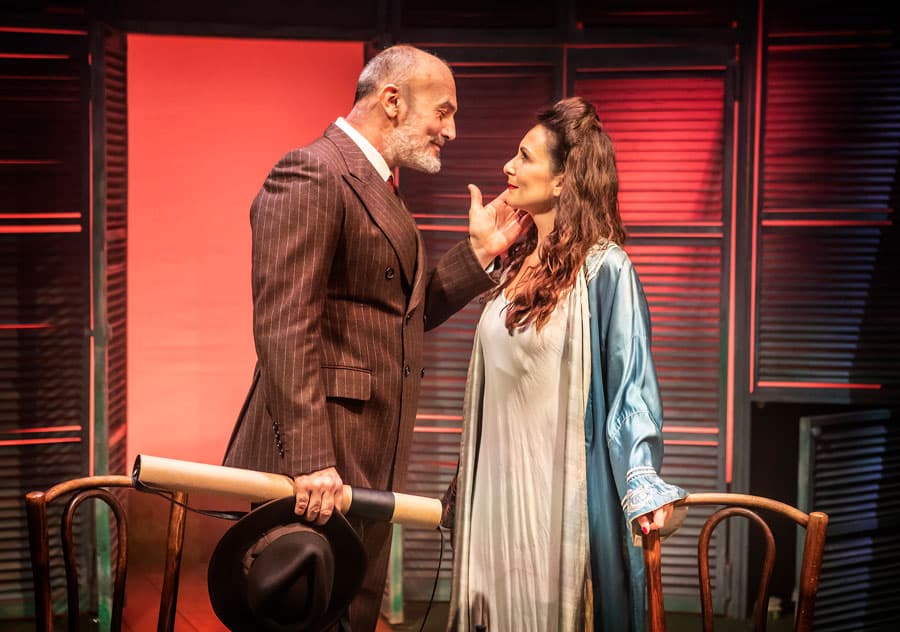
And it is through the lives of their characters that we really live this story. Alberto miraculously had only two weeks to prepare for the transfer, but delivers a magisterial performance as the the sculptress Giulietta Trapani; her voice is stupendous, with an expertly controlled, forward sound, that brings each syllable of every word clearly and crisply to us, phrasing her lines with the care of an artist shaping a lovely figurine. She walks away with the audience’s hearts when she sings, elevating us with her intense lyricism. Her opposite number, the bossy, impulsive and capricious actress Rose Vibert, is another top-class performance from Kelly Price, who grows and grows through this story, changing sometimes by the moment right in front of our eyes, as her commitments to the people – especially to the men – around her switch and change and develop and fall apart. This show, really, is the story of these two women. Interestingly, just as the recently reproduced ‘The Woman In White’ also showed us at the Charing Cross Theatre, Lloyd Webber writes some of the best dramatic roles for women in this genre. Here, with all the glamour and show of a big production stripped away, we see their destinies, their feelings and thoughts and fears and hopes written finely into every nuanced move along the lucious melodiousness of his music.
The men, by contrast, here really do have to play second fiddle to these heroines. Rose’s new conquest, the gauche 17-year old Alex Dillingham, is sympathetically and believably rendered by relative newcomer Felix Mosse: he has a wonderful voice and is sure to go a long way as he develops other aspects of his craft, and, with time, he will surely gain in dramatic skills (this happens again and again with young singers, and particularly, if I may say so, the men). Mosse has a harder time of it when he has to age 17 years and play much older than he currently is: this is not an easy thing to do. On the other hand, Jerome Pradon as the more established figure, Uncle George Dillingham, has some fun with the inter-generational tensions, and sings his music – which contains some of Lloyd Webber’s most thoughtful moments, fittingly with the eldest and wisest player in this troupe – with care and grace, although there occasionally seems to be a wayward focus of characterisation. Minal Patel, as the secondary role of Marcel Richard, gives us great vocal warmth, while Eleanor Walsh plays a remarkably convincing teenage vamp in her Jenny Dillingham. Everyone in this show is in love with everybody else… and as messily and complicatedly as possible, it seems. We would probably avoid them if we had to live next to them, but in the hands of the lyrical poetry of Black and Hart and the ravishing melodies of Lloyd Webber, we end up rather wanting to be just like them!
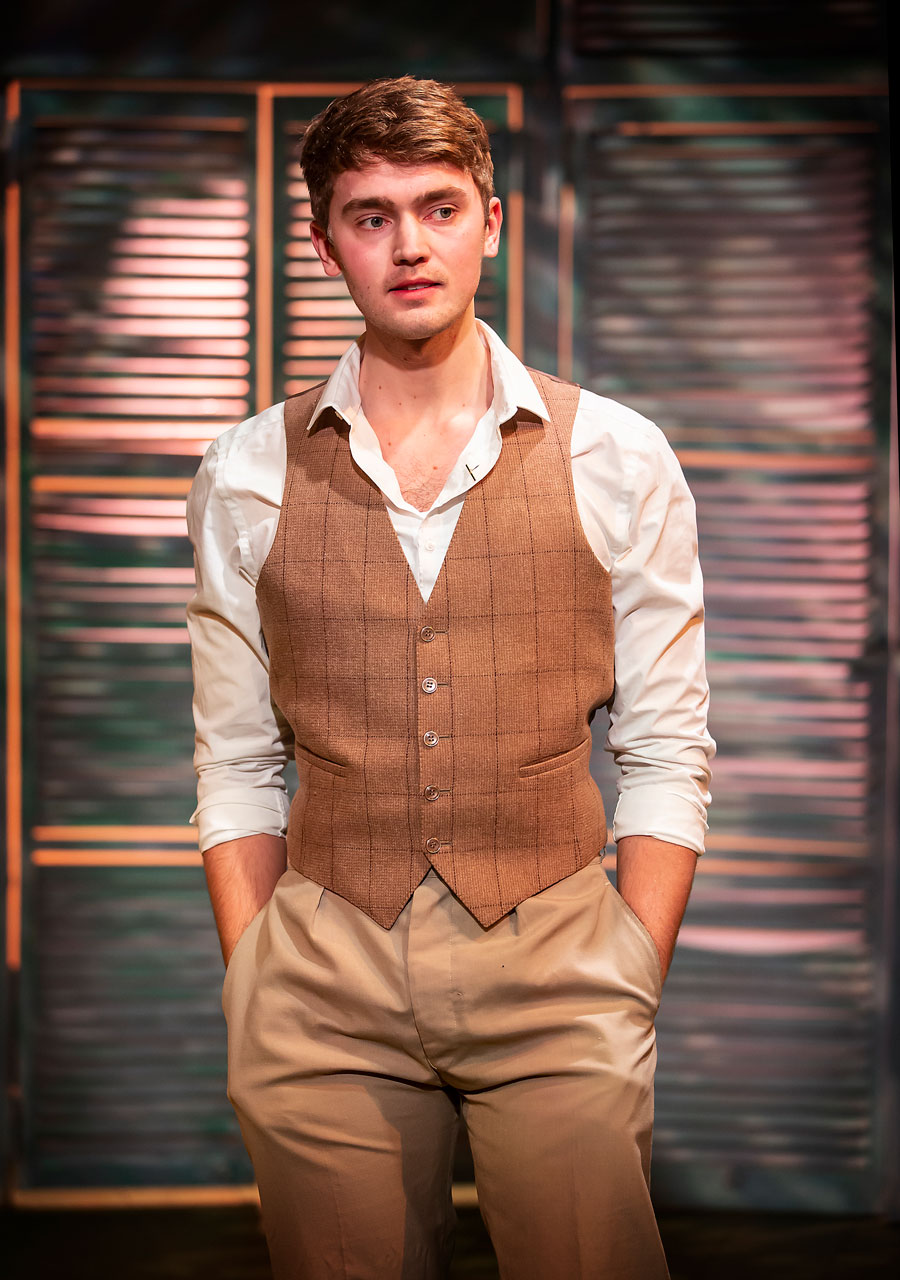
Around these major players, there is a nice little ensemble of Julia J Nagle’s Elizabeth, Jason Kajdi’s athletic and alert Hugo Le Meunier (and many other roles), Jack Churms’ Jerome (et al), and Eleanor Jackson’s appealing Waitress, Actress and more. These well cast performers fill the parts that, were this a film, would be taken by expertly chosen cameo actors; they are what produce the sense of ‘reality’ that must surround the lives of the central figures.
The music itself is well played by MD Richard Bates – a highly experienced professional; he plays one of the two pianos (Tom Chippendale takes the other, and always sounds perfectly as one with his director), clearly and intelligently, with some lovely percussion effects from Jess Clarke. There is a difference, though, in using upright pianos (as here) opposed to grands (as in, for instance, the Charing Cross’s recent ‘Mikado’). That is not a reflection on the performers, but the quality of this music really does need the best instruments, and Bates and Chippendale don’t get them: it might be said that the theatre doesn’t have space for them, but since they are amplified, then they could be placed outside. The sound management of their music, and that of the cast, is also problematic; designer James Nicholson was still busy trying to fix some – highly noticeable – technical issues when the rest of us were out celebrating after the show in the bar. I hope that all gets cleared up.
Taken as a whole, O’Boyle delivers many felicitous moments when the play between his figures his free and easy and – above all – spontaneous and natural, and microscopically attuned to the precise contours of the drama – the trickiness of which is positively Chekovian, and far outreaches the average musical theatre book! Equally, there are many times when we see his blocking but without the same kind of detail in execution. And on the stage of the Southwark Playhouse there is no way for the performers to hide such absences. There are times when they really do seem to be standing around waiting to have something to do. We forgive them for that, because we know that in due course they will be extricated from such pauses by the magic of the score and lyrics. When Sam Spencer-Lane gets a chance to flex her choreographic muscles (and, really, there is only one number in the second act of the show when these properly take flight – and marvellously), there is more, much needed dynamism on stage. Arguably, more of this might be present elsewhere, and to good effect. As the run progresses, I should imagine that such ‘gaps’ will become filled, enriched with a more complete realisation of this production’s vision. At least, I would hope so.
Because, overall, it is a fine achievement. It has made us recognise, once again, that Andrew Lloyd Webber is one of the most remarkable and memorable creators of musical theatre not only in this country, but in any place, at any time. This is a beautiful production that refreshes our knowledge of this fact, and transports us into the precious and thrilling world that is his creative imagination. See this show and the sound of his music will ring in your ears for days, weeks thereafter, conjoined with the elegant, exquisite words of two greats of the British musical world, lyricists Don Black and Charles Hart.
Until 9 February 2019
